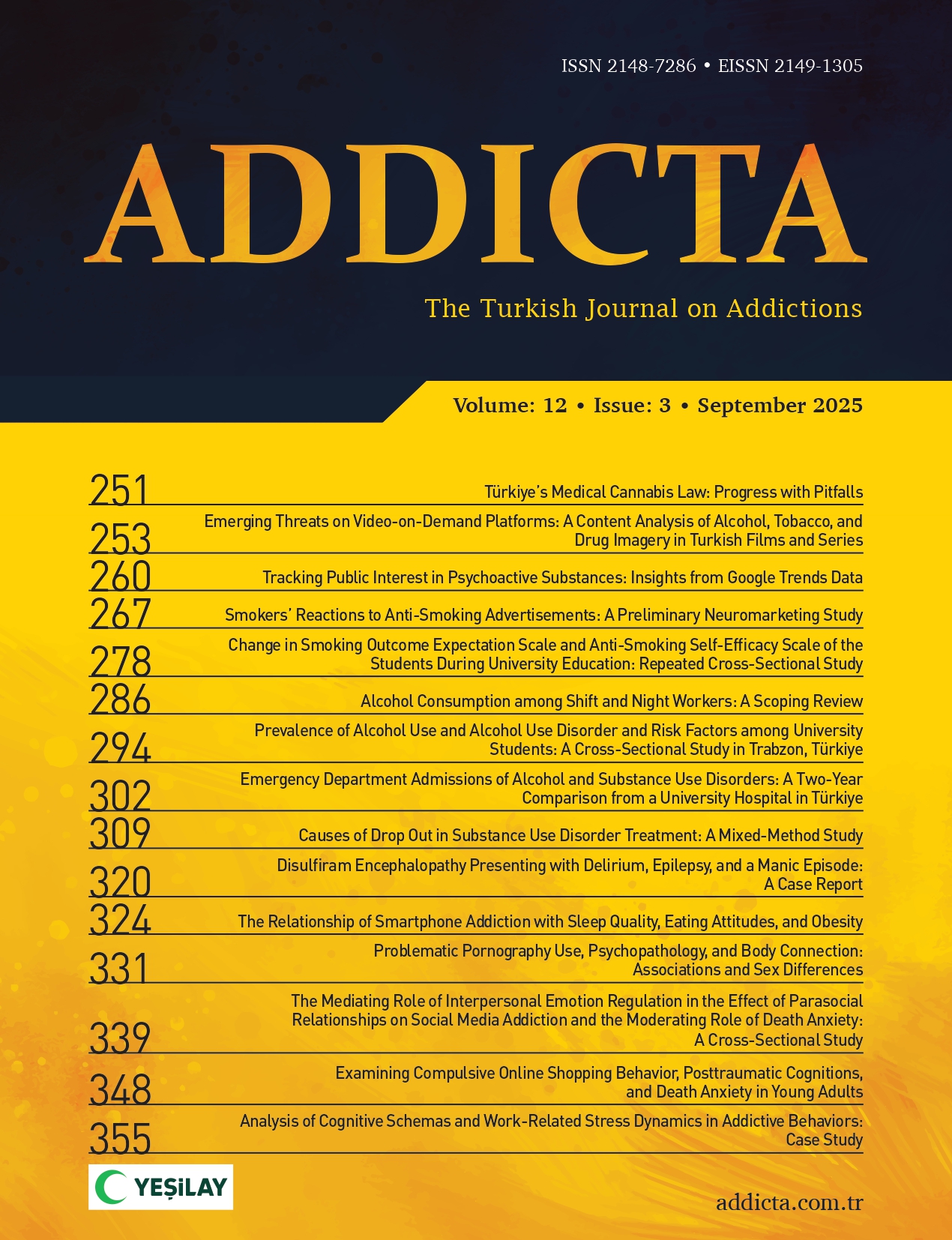This study aims to evaluate the treatment effectiveness of an addiction counseling center. The effectiveness of treatment in treating addiction depends on many factors. In the present study, the efficacy of treatment has been carried out by considering concepts such as engagement, duration, retention rate, abstinence period, drop out rate, and client satisfaction. This study has been conducted over 554 individuals with alcohol and/or substance use disorders who applied to the Turkish Green Crescent Counseling Center (YEDAM) between January 2016 and July 2017. Characteristics of the disorder (craving, motivation for quitting, number of quitting attempts, etc.) have been evaluated retrospectively using the Addiction Profile Index (BAPI). During evaluation, the clients who hadn’t shown up since the previous session were considered to have dropped out of the treatment process. In order to evaluate drop-out rates, the clients who came to the 2nd, 5th, and 10th sessions were considered to have accomplished the cross-sectional evaluation. In-depth interviews have been conducted with 155 clients in order to detect the reasons for dropping out. The factor of client satisfaction, which has been addresses within treatment effectiveness, is evaluated using the Satisfaction Survey, which the clients completed. The clients’ duration of abstinence and psychosocial recovery have been evaluated using the Addiction Progress Index (BASI) after each session. The retention rate at three months has been found as 40.1%. Participating in the second session has been found to make clients stay longer in treatment compared to clients who participated the first session. Age, education level, and probationary decisions have been found as the most important factors determining dropping out. The abstinence rate for clients staying sober in the first month has been found as 52.5%; the rate for clients who continued their treatment for three months has been measured as 66%. Clients with low motivation have been observed to remain in treatment at a rate of 57.5%. The rate for applicants who checked the “I am very satisfied” statement on the Client Satisfaction Survey has been found as 55.9%. The motivational interview techniques used in YEDAM have been found to be effective in terms of maintaining treatment. As long as clients stay in treatment, their abstinence rates and psycho-social recovery are found to increase and alcohol/drug use to decrease. Most clients were satisfied with the service they had received in YEDAM. To conclude, the treatment program in YEDAM is observed to be effective in terms of addiction recovery.
To cite this article: Şimşek, M., Aktürk, İ., Dinç, M., Işık, S., & Ögel, K. (2019). Evaluating the treatment effectiveness of an addiction counseling center. Addicta: The Turkish Journal on Addictions, 6, 797−819. http://dx.doi.org/10.15805/addicta.2019.6.3.0051

.png)


.png)
.png)